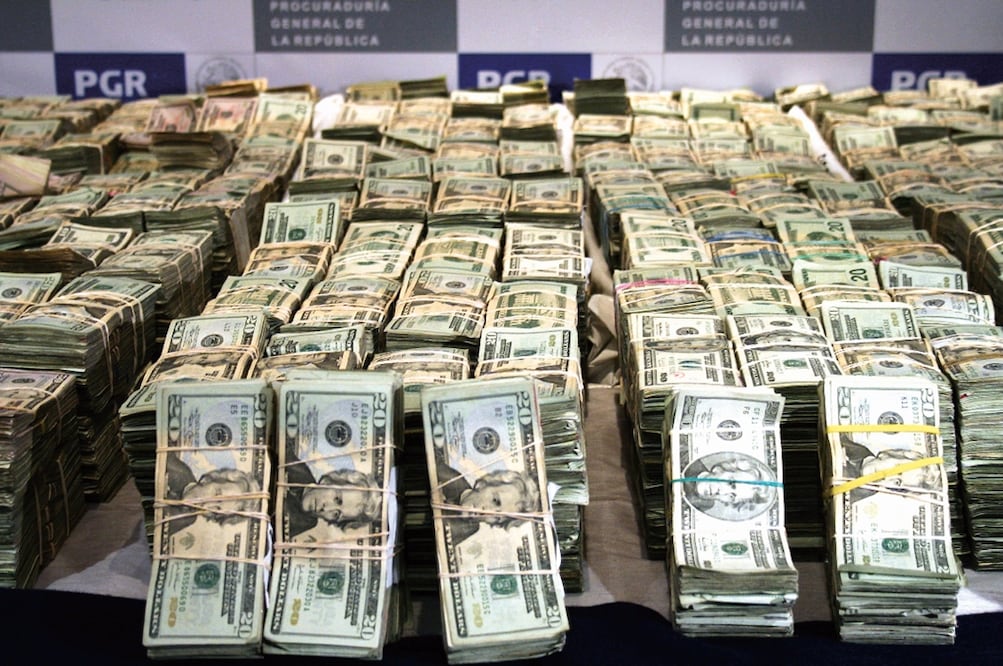Más Información

Presidencia lanza convocatoria para segundo encuentro continental de youtubers; en 2024 gritaron porras a AMLO

Convocan a reunión de "therians" y sólo acude un "french poodle"; "cuando nadie me ve me como las croquetas del plato de los gatos"

"Lo hice por mí y por todas las mujeres a las que ha agredido"; Grecia Quiroz responde a señalamientos de Noroña
Leer en español
Money laundering
is one of the most effective strategies organized crime has to secure their income and dispel suspicion regarding its origin. Money obtained from illegal activities flows in the national economy and contributes to its dynamism; however, it also preserves the cycle of crime and its negative impact on Mexican society.
Despite the damage money laundering does to our country, there are industries where this crime is a constant due to the flexible legal controls they have. Like EL UNIVERSAL publishes today, jewelry companies are the most reluctant to comply with the anti-money laundering laws despite being the most vulnerable.
A few days ago, the Financial Action Task Force (FATF/GAFI) published the Mutual Evaluation of Mexico, a report detailing the areas of opportunity and the progress our country has made on the implementation of anti-money laundering and counterterrorist financing standards since 2008, year when the previous report was issued.
According to the experts, while Mexico has a solid anti-money laundering model, systemic corruption is the main threat. That is, even when our legal framework and institutional design are adequate, the people who intervene in the process are the ones who allow the crime to remain in our environment.
We shouldn't forget a strict money laundering control can greatly contribute to reducing insecurity in our country. If the legal framework and procedures were to be implemented in coordination with the federal agencies, we would be able to identify people working for organized crime groups and cut their access to resources, thus crippling their operations.
The cooperation of corporations, of industries, is vital against money laundering. We're talking about agents that, together with the government, have the capacity to contribute to the prevention, investigation, and prosecution of this and other related crimes. Moreover, technology can make it easier to obtain useful intel against money laundering.
The biggest obstacle is corruption, encouraged by the economic possibilities offered by criminal organizations. The joint effort of the different levels of government and the industries most vulnerable, with the support of adequate technology, could help reduce significantly this crime in favor of Mexican citizens. Is there a will to achieve it?
am
Noticias según tus intereses
[Publicidad]
[Publicidad]











